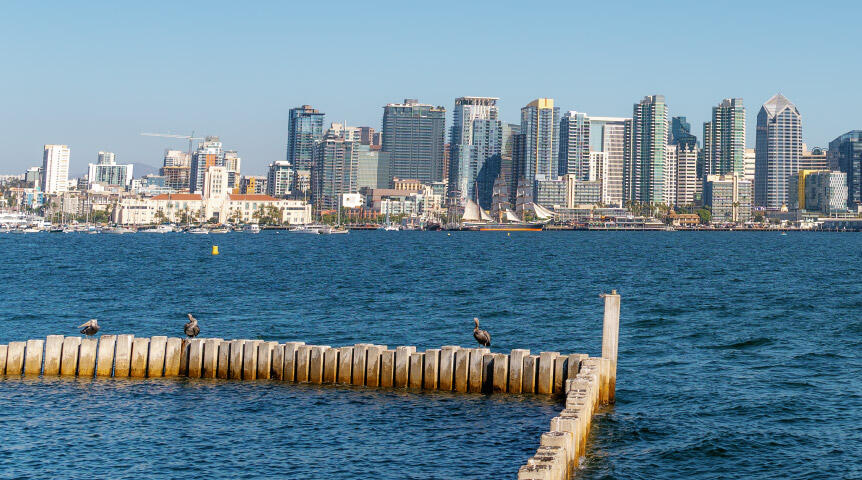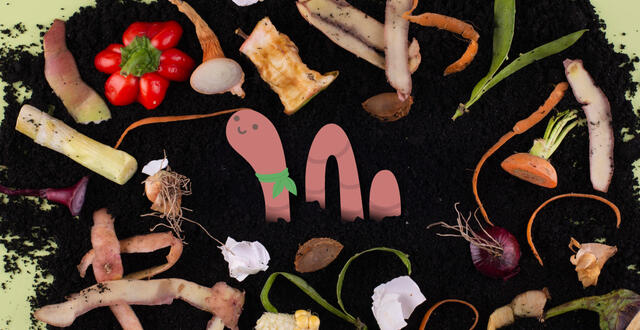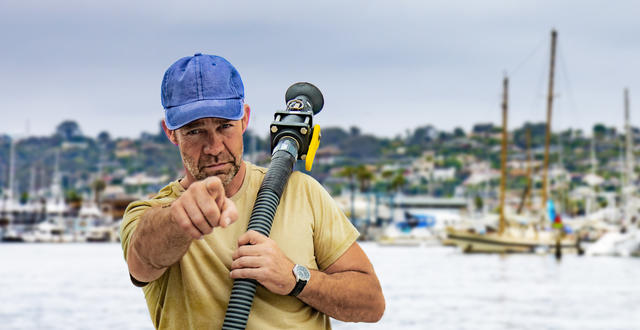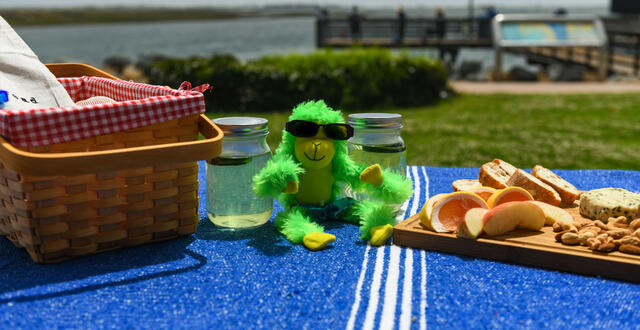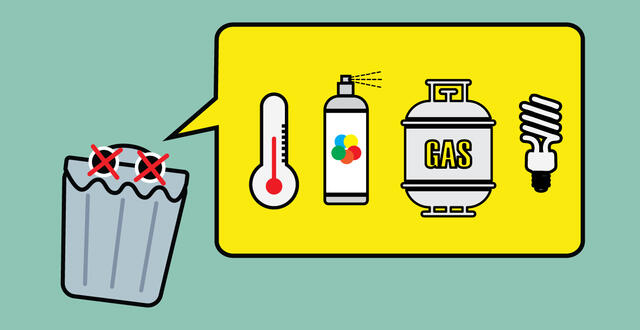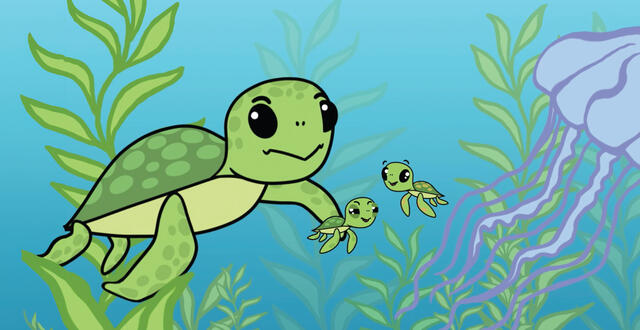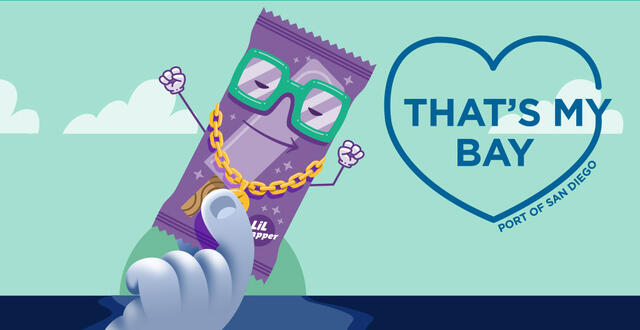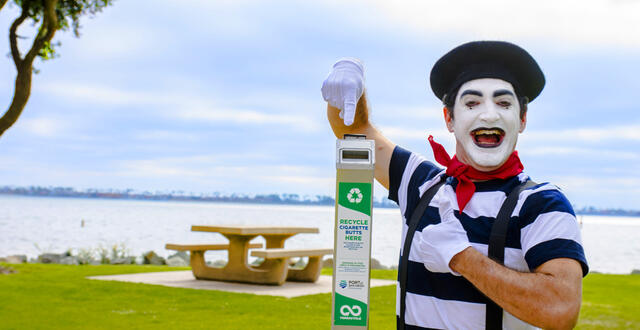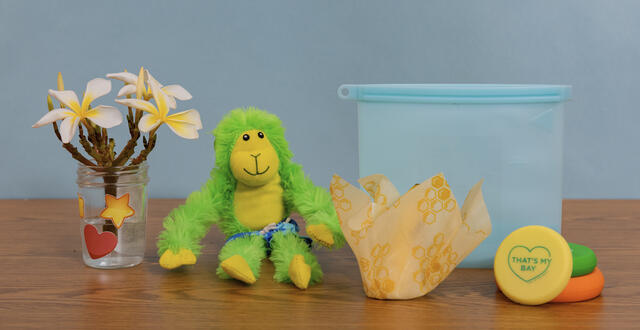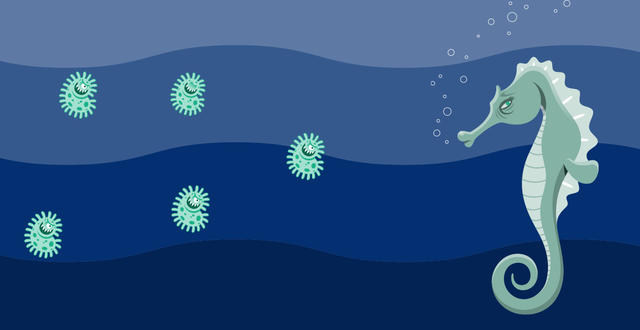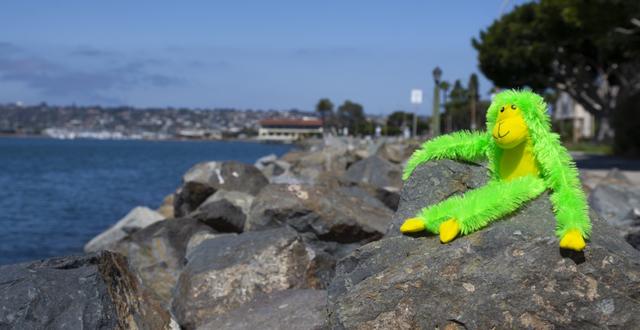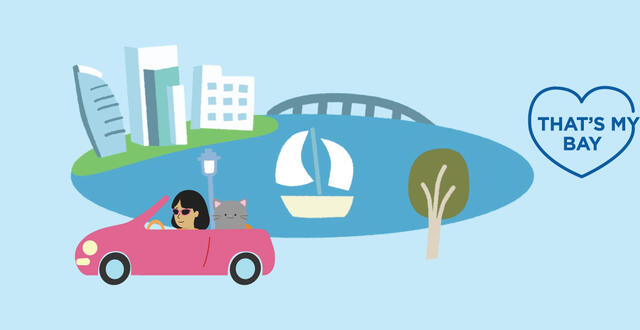I Pledge to…
Whether you’re sorting your trash or simply picking up after your pet, every action matters. Take the pledge and join our community of #ThatsMyBay Environmental Champions today!
Pledge
Every action pledged helps keep San Diego Bay clean.
Act
When you take your pledge to be an Environmental Champion, you’re affirming an action or habit to help maintain the beauty and health of San Diego Bay!
Enjoy
As each pledge is counted and action is taken, the bay should look a little brighter and cleaner. Be sure to take a moment to connect and enjoy our beautiful waters.
Share
Let your network know that you took your #ThatsMyBay pledge and help the community grow. Share your pledge on social with our tool kit. In the tool kit, you’ll find a selection of graphics, sample posts, and our #ThatsMyBay flyer.
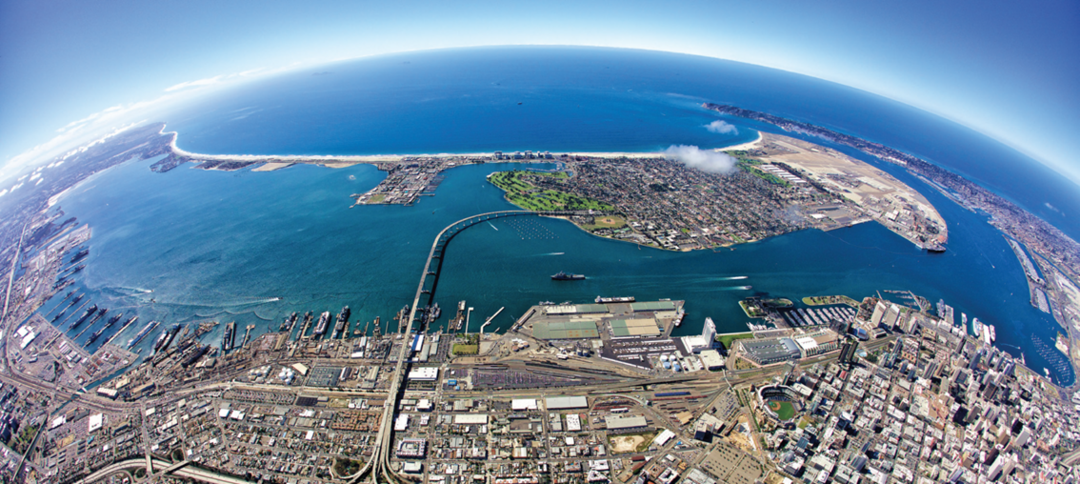
What Your #ThatsMyBay Environmental Champion Pledge Means
I will...ensure all trash is placed in proper bins, so it never ends up in San Diego Bay.
Any piece of trash that isn’t properly disposed of can end up in San Diego Bay – whether it be by wind, rain, or traveling through the storm drains. This is why it is important to make sure all your waste ends up in a designated receptacle.
Typical trash can be thrown away in garbage bins, but paper, plastics, glass, and cans should all be recycled, as long as they are empty and dry.
Tip: Keep a mini trash receptacle in your car to contain any small pieces of trash until they can be discarded in a serviced receptacle.
I will...choose environmentally friendly cleaning and lawn care products to help prevent harmful chemicals from entering San Diego Bay.
When it rains, the pesticides, herbicides, fertilizers, and cleaners that are used outdoors can be washed into the storm drains and go directly to the bay. It is best not to use any cleaning or lawn care products before a storm, but whenever you do use these substances, opt for environmentally friendly versions instead of the chemical alternative.
Tip: Use compost as fertilizer, vinegar-based cleaners, and diatomaceous earth as pesticide.
I will …store household hazardous waste in secure containers until it can be properly disposed of at San Diego’s hazardous waste facilities.
When hazardous waste items are improperly disposed of, we run the risk of untreated chemicals seeping into our soil, groundwater, and our beautiful San Diego Bay. The effects of introducing these chemicals into the environment can be catastrophic to human health and the bay ecosystem.
Household Hazardous Waste (HHW) not only includes common cleaning/yard chemicals, but also old electronics, batteries, pharmaceutical waste and more.
I will...service my vehicle regularly to prevent fluid leaks that could wash into San Diego Bay.
Unmaintained vehicles can leak oil and chemicals onto driveways and roads, and this all gets washed into storm drains and the bay when it rains.
These leaks also inherently indicate an issue with your vehicle. Routine vehicle maintenance prevents this, benefiting the environment and keeping your vehicle safe to drive.
Tip: If any leaks do occur, call your mechanic. Once deemed safe for you to handle and clean, use kitty litter or another absorbent material to soak up the spill, then sweep it into a bag and dispose of it properly as household hazardous waste.
I will...always pick up after my pet to prevent waste and bacteria from spreading around the environment and polluting waterways and San Diego Bay.
Picking up after your pet not only prevents people from stepping in it, but it also prevents the waste from spreading around the environment and polluting the bay.
Pet waste can contain bacteria, parasites, and viruses that have the potential to make people sick and harm marine ecosystems. Even when the waste is left away from areas with pedestrian traffic, it can be washed into the streets, into the storm drains, and into the bay when it rains.
Tip: Keeping a pet waste bag holder and bags in your car ensures you always have them with you when you need them.
